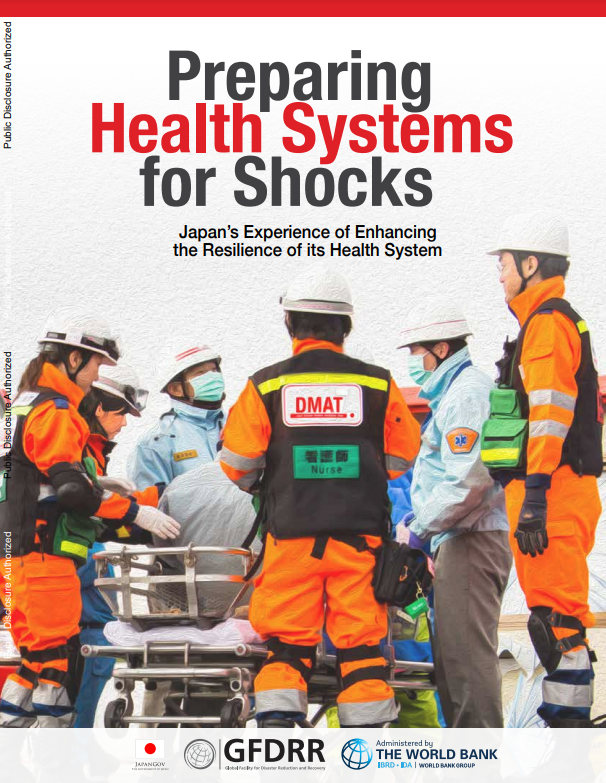This report focuses on Japan’s experiences to showcase how the country incrementally strengthened the resilience of its health system by enhancing its capacity to prepare for, respond to, and recover from crises, drawing valuable lessons from its experience of major earthquakes, floods, and infectious disease outbreaks. This report emphasizes the country’s efforts, focused on the intersection of health systems, disaster risk management, and quality infrastructure, integrating these sectors through the development of key regulations, governance mechanisms, and capacity building for all stakeholders involved in strengthening the health system's ability to withstand shocks. It aims to share these historical experiences and early lessons learned from the COVID-19 pandemic with public sector decision-makers and practitioners elsewhere who face similar challenges, providing practical reference material to inform and inspire shock-resilient policy reforms and infrastructure investments. Today more than ever, the resilience of health systems is crucial to provide lifesaving care during crises such as pandemics, disasters, and other major shocks, while still remaining a highly challenging proposition, as the COVID-19 pandemic reminded us.
Preparing Health Systems for Shocks : Japan’s Experience of Enhancing Resilience of Health Systems
December 16, 2024

